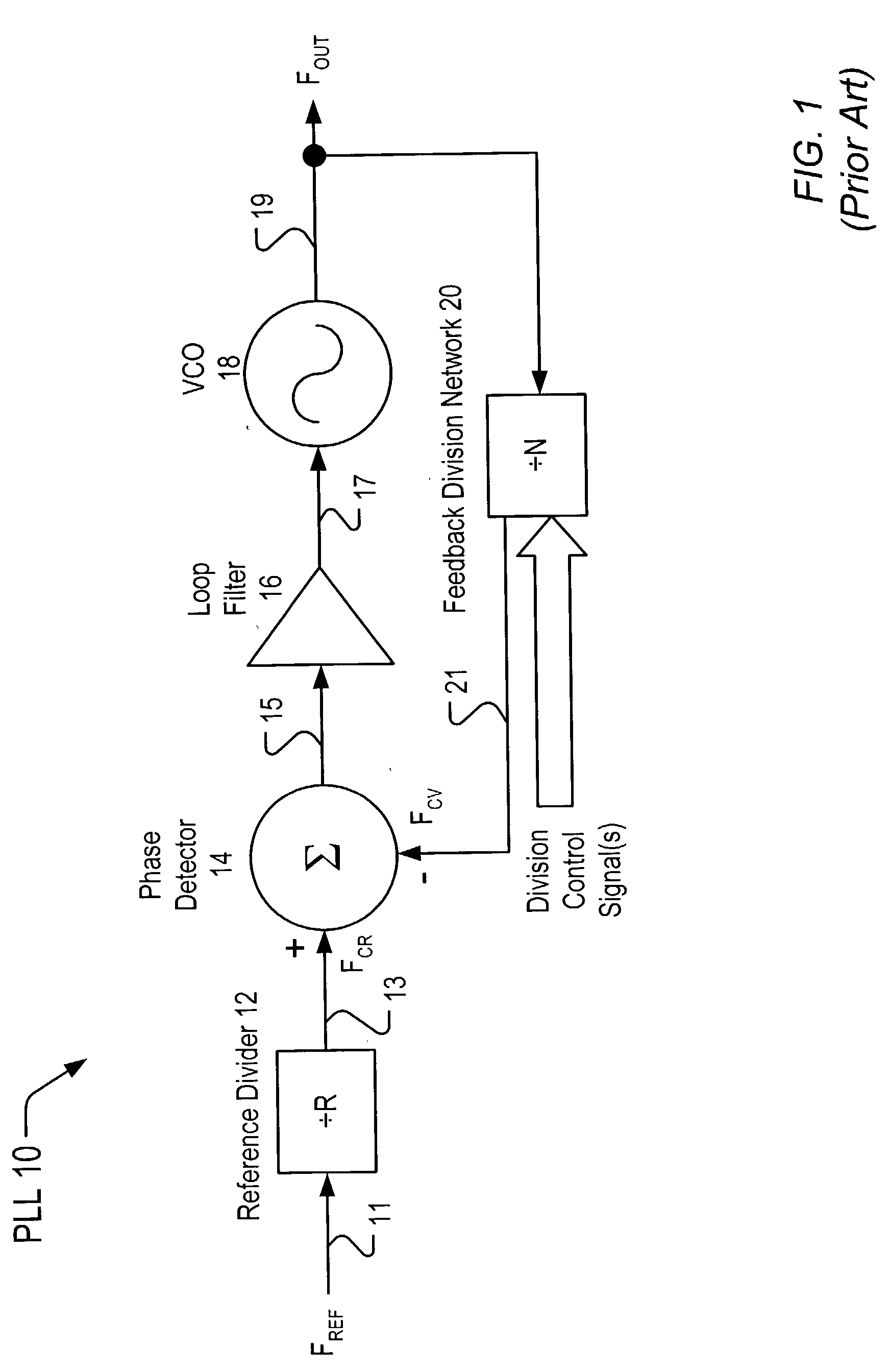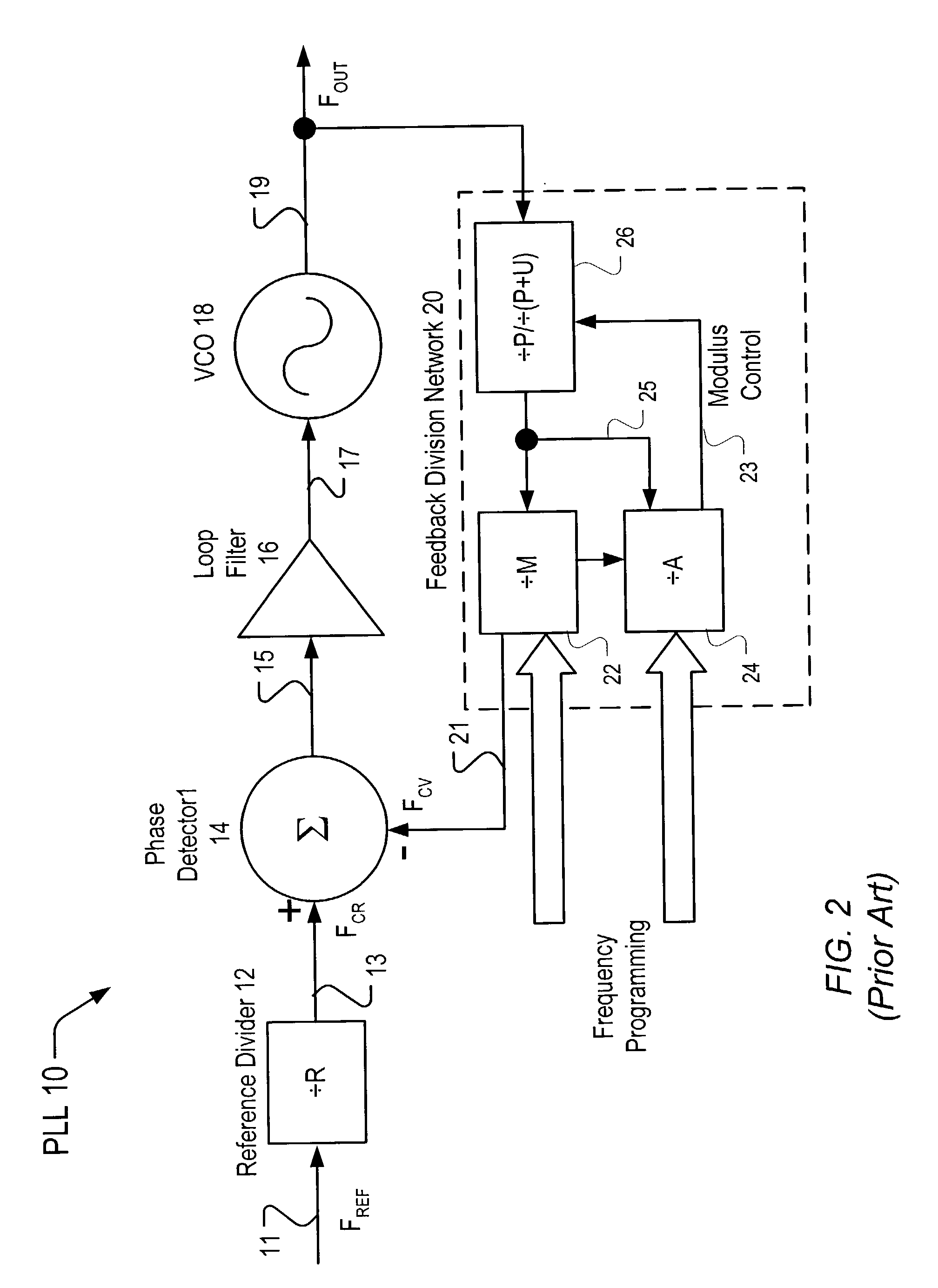Co-prime division prescaler and frequency synthesizer
a pre-synthesizer and co-prime division technology, applied in the direction of oscillator generators, pulse automatic control, pulse technique, etc., can solve the problems of increasing the phase noise level inside the closed loop bandwidth and slowing down the settling tim
- Summary
- Abstract
- Description
- Claims
- Application Information
AI Technical Summary
Problems solved by technology
Method used
Image
Examples
Embodiment Construction
[0036] Various embodiments of systems and methods for performing co-prime frequency division may be implemented within frequency dividers by using T uniformly spaced phases of a clock signal to generate T cycles at the divider output during S cycles at the divider input, where S and T are co-prime and S>T.
[0037] Two integers S and T are co-prime if and only if the greatest common divisor between them is one (1). Since there are no common factors between S and T, dividing S by T results in a rational number in the form of an irreducible fraction (i.e., a fraction in its lowest terms). Note that integer division is a special case of co-prime division with T=1. Other than the degenerate case where T=1, all other choices of T will result in the irreducible fraction S / T being expressable in decimal form with a non-zero fractional component. For example, the simplest, non-degenerate co-prime frequency divider is a {{fraction (3 / 2)}} divider (S=3 & T=2) that uses 2 uniformly spaced clock s...
PUM
 Login to View More
Login to View More Abstract
Description
Claims
Application Information
 Login to View More
Login to View More - R&D
- Intellectual Property
- Life Sciences
- Materials
- Tech Scout
- Unparalleled Data Quality
- Higher Quality Content
- 60% Fewer Hallucinations
Browse by: Latest US Patents, China's latest patents, Technical Efficacy Thesaurus, Application Domain, Technology Topic, Popular Technical Reports.
© 2025 PatSnap. All rights reserved.Legal|Privacy policy|Modern Slavery Act Transparency Statement|Sitemap|About US| Contact US: help@patsnap.com



